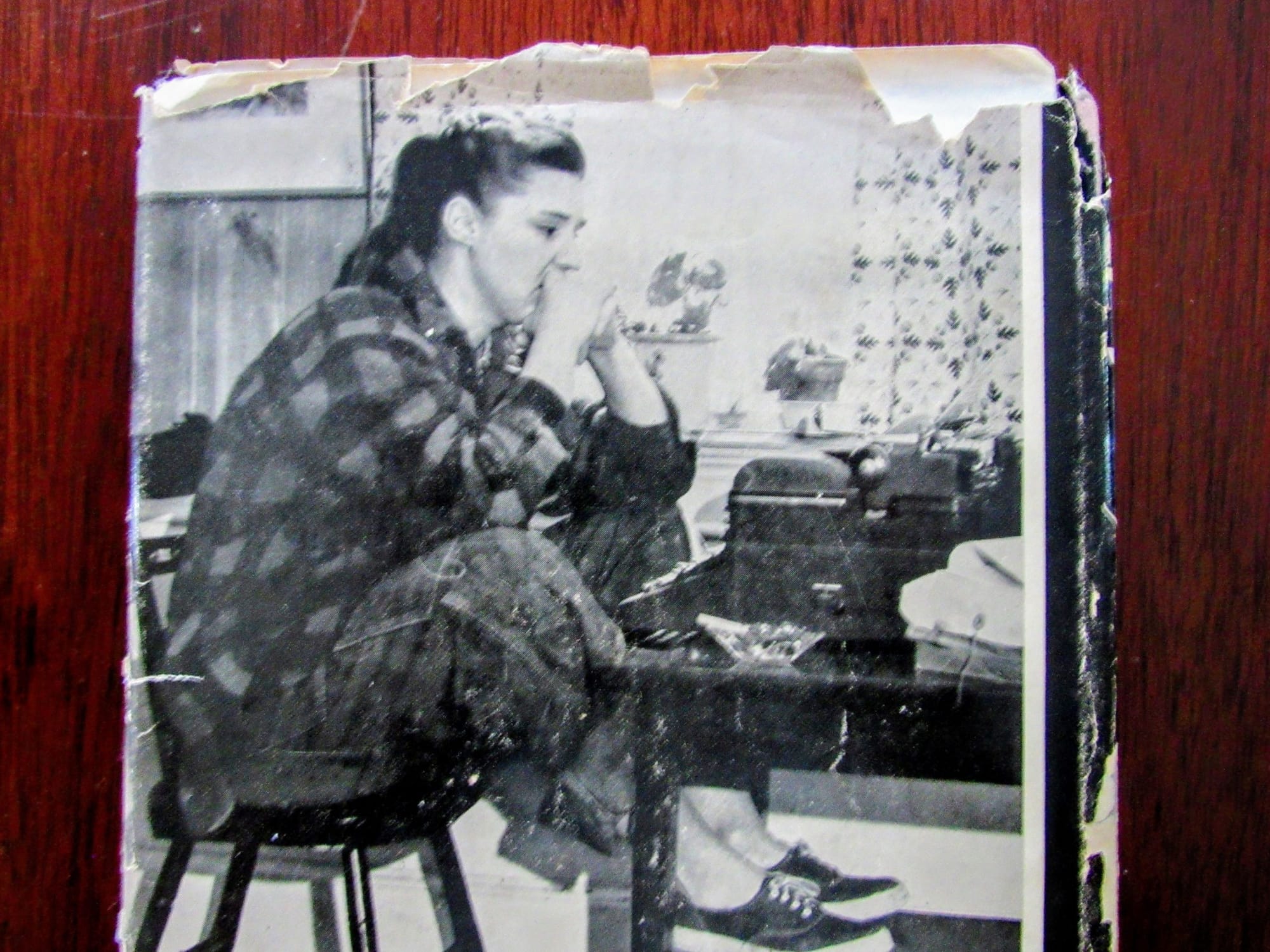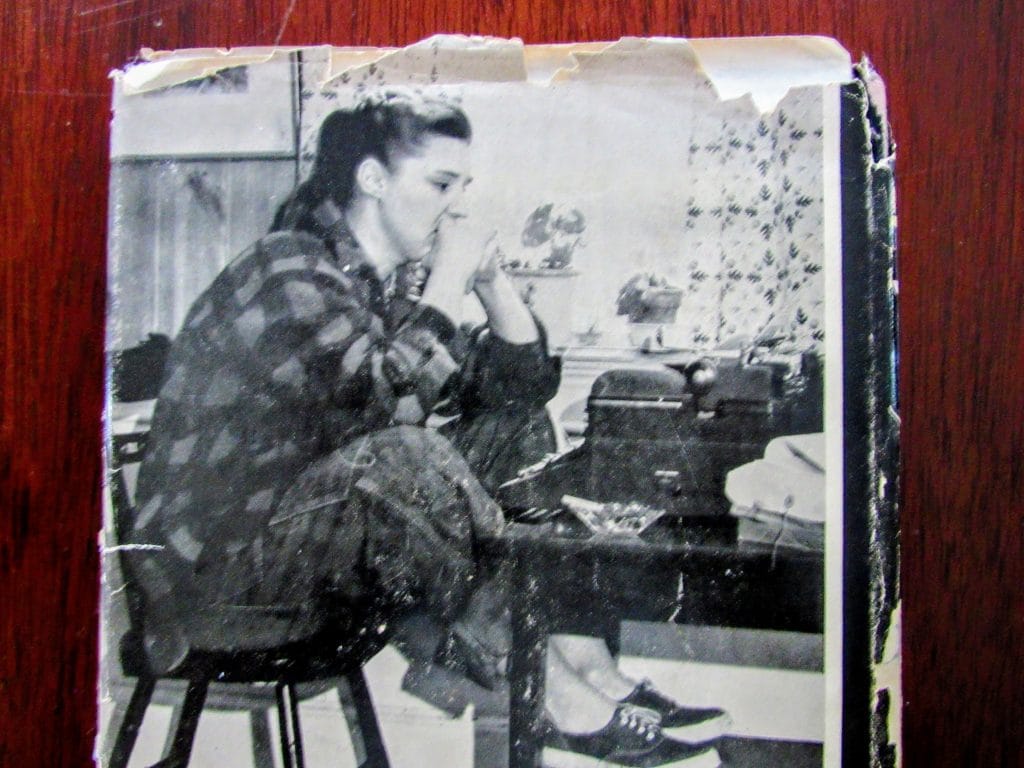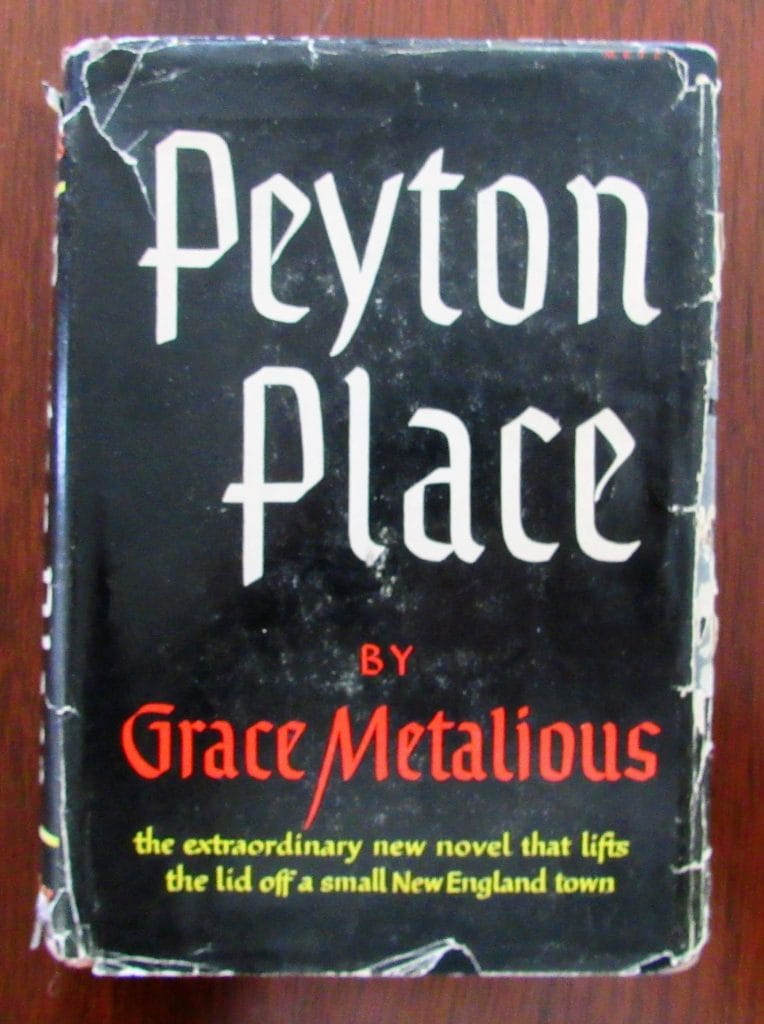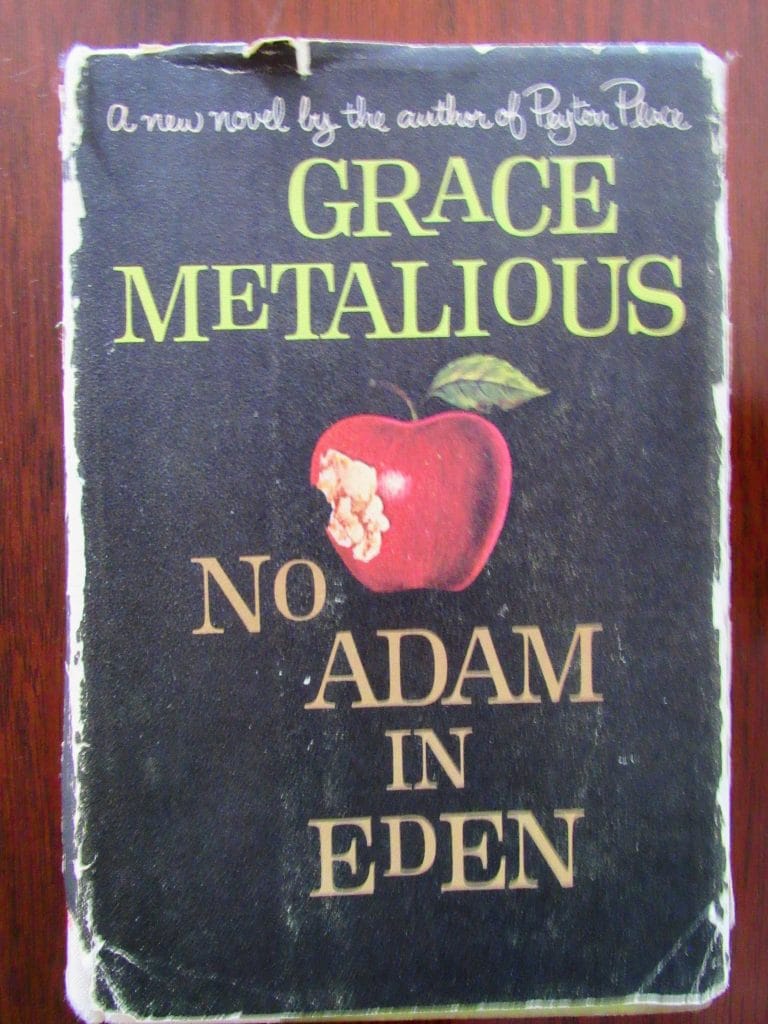September is centennial of the birth of New Hampshire author Grace Metalious
Indian summer is like a woman. Ripe, highly passionate, but fickle, she comes and goes as she pleases…” Such is the opening line of Peyton Place, the controversial novel published in 1956 that eventually sold 20 million copies, was turned into a sanitized 1957 major movie that garnered nine Academy



“Indian summer is like a woman. Ripe, highly passionate, but fickle, she comes and goes as she pleases…”
Such is the opening line of Peyton Place, the controversial novel published in 1956 that eventually sold 20 million copies, was turned into a sanitized 1957 major movie that garnered nine Academy Award nominations, and became a prime-time soap opera that ran for 524 episodes and debuted both Mia Farrow and Ryan O’Neal.
The author was born Marie Grace DeRepentigny on September 8, 1924 in Manchester. Her birth family moved with regularity to a number of Manchester multi-family apartment buildings. To escape the dysfunction and her parents’ bickering, Grace set up with a stool and a notebook in her Aunt Gracie’s bathtub at 11 years old, giving new meaning to the term immersed in literature. Her father joined the Merchant Marine, leaving the family for good the following year. Her mother liked to present her flea market finds as antique French furniture. At one time Grace pretended that her full name was Grace Marie-Antionette Jeanne d’Arc de Repentigny. Cleary there were inner visions for something better.

She attended Ash Street School and Central High School, marrying classmate George Metalious at 18. The couple eventually had three children who were often left to their own devices when Grace was at the typewriter. Their Gilmanton cottage was named It’ll Do. A dutiful homemaker Grace was not. Daughter Marcia saw it this way: “When she was writing basically everything else went to hell.”
Grace Metalious died at 39 years old in September, 1964, from her drinking, a victim of fame and fortune and just months before the ABC series first aired. The series made $62 million for the network but Metalious had signed away film and television rights for $250,000. She died with assets of $41,000 and debts of $200,000.
Her life is easily divided into two parts: Before Peyton Place was published in 1956 and after she achieved fame she couldn’t handle. In the eyes of many, Metalious’s life after publication began to read like her famous novel. She left her estate, such as it was, to British journalist John Rees, the last in a string of lovers post-publication. Metalious’s death-bed revision of her will was later invalidated when it was discovered that Rees had a wife and five children in England.
Her best friend Laurose Wilkens said of the book’s publication: “Grace Metalious would never be really poor or really happy again.”
Peyton Place offended two groups of people. The first were the citizens of Gilmanton, New Hampshire, as they felt the steamy book too closely resembled townspeople. One co-worker of Metalious’s husband George, the local high school principal, settled a libel suit against the publisher for $60,000. It was discovered later that Grace had forged Tomas Markis’s name on the release form. The second group of offended people were readers unused to candid sex, drugs and rock’n’roll. William Loeb called the book “literary sewage.”
Robert B. Perreault is a Manchester historian specializing in the area’s Franco-American culture and people. One of his six books about Manchester, Franco-American Life & Culture in Manchester, New Hampshire, has a chapter on Metalious. He consulted on Emily Toth’s 1981 biography Inside Peyton Place: The Life of Grace Metalious. Through the New Hampshire Humanities Council, Perreault presents a talk Before Peyton Place-In Search of the Real Grace Metalious.
Metalious has found a place in feminist circles for Peyton Place’s portrayal of both sexually active and powerful women. A 2006 Vanity Fair article stated that Metalious was “an accidental and largely forgotten feminist pioneer.”
Below is a Q&A with Perreault.

Q: How did you first get interested in Grace Metalious?
Perreault: Grace Metalious’s Peyton Place was made into a TV show, the first prime-time soap opera in the fall of 1964 when I was in the 8th grade and our parents wouldn’t allow us to watch it. But there was a rumor around school that the show was based upon this really dirty book that was written by this woman Grace something-or-other with an ‘M,’ we couldn’t pronounce it, who lived right near our school. Students picked out a mansion there on the corner of Pearl and Walnut streets, and I thought Wow! A Manchester author! Authors lived in New York, California or faraway places. They don’t live in Manchester.
Q: You use the term “shockingly revolutionary” to describe Peyton Place. Can you briefly elaborate.
A: In the 1950s life was like I described it before – the picket fence thing and the quiet. But what was going on in people’s lives behind the scenes? All kinds of things were happening and Grace blew the lid off of all that because these were supposed to be private things behind the curtains. You just didn’t do this kind of thing and she was a woman! I think a man might have been able to get away with it. Jack Kerouac was writing at the same time, writing about the Beat Generation and all these wild things with the beatniks. A lot of that was fake stuff but he got away with it. Women, housewives everywhere, young girls and teenagers were reading Peyton Place. It was shocking. Today it would be mild.

Q: Another area Franco-American, Jack Kerouac, saw his outside-the-mold novel On the Road published less than a year after Peyton Place. Do you see any connection between either the authors or their books?
A: There is no evidence that they ever met and they’re two very different writers. She’s more popular. He’s more literary. But as Franco-Americans, he grew up in Lowell and he wrote several novels about Lowell just as she wrote one novel featuring Manchester, No Adam in Eden, which nobody knows about. Some of the text is in French. If she had only written that novel, we wouldn’t be having this discussion. They grew up in the same kind of atmosphere but were ambiguous about it. In one way they embraced it but in another way they rejected it.
Q: Where is Grace Metalious Lane in Manchester?
A: Grace Metalious Lane is – you know that house I mentioned, that mansion? It’s right behind that house, from Bridge Street over to Pearl Street, between Walnut and Beech streets. It’s the back alley there and I was one of the four people that got the place named along with Greg Barrett with Kas-Bar Realty because he bought that house and made it into condos and called it Peyton Place…The other people are John Clayton and Aurore Eaton.
Q: You claim that Metalious’s final novel No Adam in Eden shows the most Manchester influence.
A: I do because…I don’t just claim it; I know it. Livingstone, New Hampshire, is Manchester. Northeast Manufacturing Company is the Amoskeag Mills. The Pilgrim Ice Cream Parlor is the Puritan. C’mon. They’re so close. Deer Park is Derryfield Park, etc. She even talks about the corner of Bridge and Ash streets as the place where a character meets her boyfriends.
Q: Metalious’s finances seemingly always spun out of control after Peyton Place’s publication. Her literary agent Jacques Chamburn embezzled from her. She spent a million dollars in eight years. She was blackmailed by her estranged husband, George, into paying for his graduate school. Was she a victim of her own success or just a victim?
A: Oh, she was a victim of her own success in the sense that you know people who win the lottery, you find out years later that they’ve gone bankrupt. It’s because they’re not used to having money. When you’ve grown up poor and suddenly you have this great windfall, what are you going to do? You hire somebody to help you manage your money and Grace was a very generous person. You hear about Elvis buying Cadillacs for people. Well, Grace was like that only the money dried up … Her estate was in the hole when she died.





